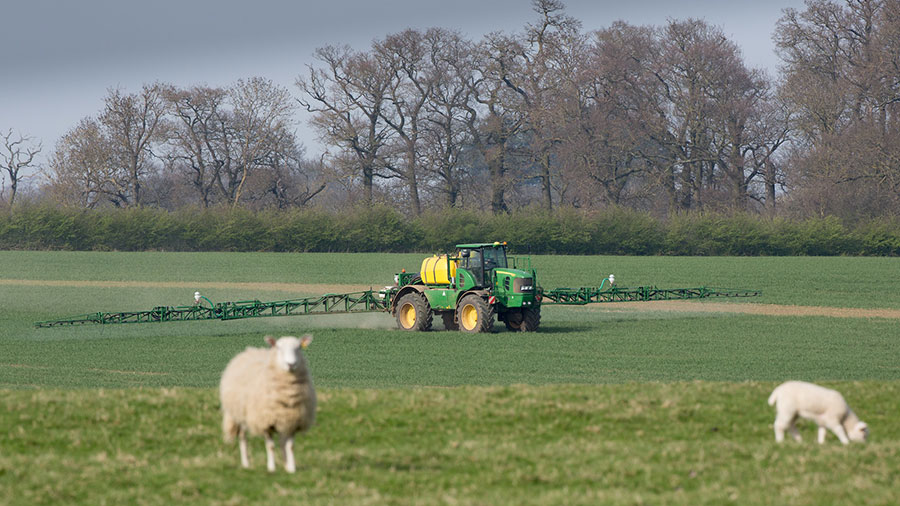Opinion: Time-honoured good husbandry ticks ‘regen ag’ box
 © Tim Scrivener
© Tim Scrivener I have recently returned from what I think is my third or fourth visit to the Groundswell regenerative agriculture event, and every year it gets bigger and more impressive.
It is interesting to see more and more familiar faces from the steadfastly “conventional” end of the agricultural spectrum and, with the proposed changes to government support, I can see the interest growing.
It is great to meet farmers working together to share ideas and refreshingly few pushy reps trying to commercialise the whole event.
See also: Find all our Groundswell content in one place
Going round the talks at Groundswell, one finds a kaleidoscope of ideas, and the optimist in me would hope not to spot too many various vested interests peering in, wondering how best to spin it to their own advantage.
Even George Monbiot was quite compelling (well, until he got to the bit about replacing livestock with lab-grown protein).
If you want something different, how about the Sustainable Food Trust’s recent report, Feeding Britain From The Ground Up, whose authors hosted a discussion at Groundswell?
The report calls for a complete reboot of our farming system, removing most chemical inputs, feeding grain to humans, not animals, increasing pulse and vegetable production, grazing livestock extensively, and all this while maintaining or even increasing levels of UK self-sufficiency in food.
Not only has the war in Ukraine made policymakers sit up and take notice of food security, we also have climate change to tackle and one of the largest populations of unhealthy citizens on Earth.
It is quite amazing how many of the world’s problems a radical rethink of agricultural policy could solve, and here we have a way to tackle all three issues at once, and put the farmer in the centre of the solution.
Good food creates less waste. In the UK, 6.7m tonnes of food is wasted each year by consumers. Most of this food is overpackaged, nutrient-poor and probably imported.
I bet nobody who purchases quality produce from the local butcher or farm shop throws away one-third of it.
So often I go to farmer meetings and members of the audience start their questions with “people should”, “people ought to”, “people must”.
Well, we don’t live in a dictatorship, so unless you give them some pretty compelling reasons, people won’t.
Compelling reasons usually revolve around money. Numerous studies have shown that people go into the supermarket avowing good intentions and come out with a load of rubbish because it was cheap.
So here’s a thought: why not spend the Environmental Land Management scheme money the government seems to be trying to decide how to use on subsidising good, honest, local produce?
Give the money to the small-scale farms, the local producers and the pastoralists, and use it to ensure we make the best food inescapably cheap.
The nation’s health would improve, grassland would become profitable, carbon would be sequestered, and our traditional farms maintained.
Perhaps imports would decrease, too, unable to compete on price, which would do wonders for our food security and the global environment.
All dreaming? Well, for some it is more of a leap than others.
Many of the regenerative ideas – mixing arable and livestock farming, grazing cover crops, and wider, more diverse, rotations – may seem radical, but are mostly time-honoured good husbandry.
As the hands come around, maybe we are the “stopped clock” that’s telling the right time again?

